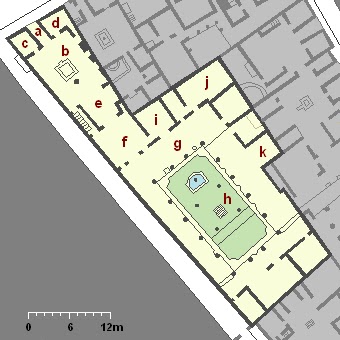$ 0.162 0.00%
Polybius (PLBT) Rank 11237
Polybius is a fully-digital bank designed to acomodate the growing digital economy, incorporating electronic identification and digital banking services to serve the needs of the digital commerce market. The Polybius is an enterprise of HashCoins, the same company that brings you the Hashflare mining contracts.
In order to fund the development of this new digital bank, Polybuis hosted an Initial Coin Offering, in which PLBT tokens were distributed among users. Through the use of Blockchain Snapshots, Polybius will destribute dividends to the PLBT token holders.
| Mkt.Cap | $ 0.00000000 | Volume 24H | 0.00000000PLBT |
| Market share | 0% | Total Supply | 20 MPLBT |
| Proof type | Open | $ 0.16 | |
| Low | $ 0.16 | High | $ 0.16 |
Tacitus on Christ
According to Polybius’s account of human nature, we are fundamentally self-interested beings who aim to increase our power. Each part of the government has a separate and distinct function. Given the separate nature of each facet of the government’s jurisdiction, each part will naturally fear the encroachment of the others beyond their proper limits. This fear generated a surprisingly beneficial type of conflict. Each of Polybius’s institutions would compete against the others in order to protect its own realm of authority.
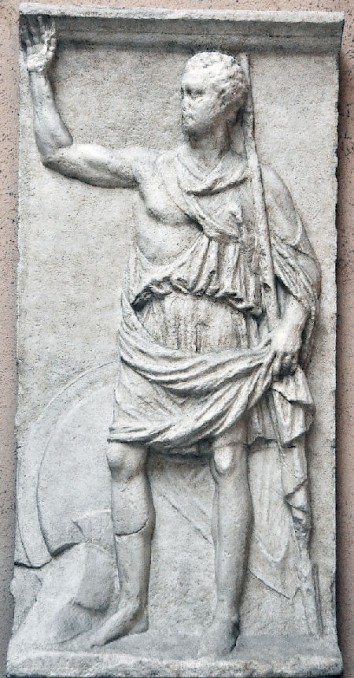
Livy's ignorance of war and politics made it hard for him to judge properly the reliability of his sources or to allow for any political bias that might have affected them. In addition he was sometimes careless in matters of chronology, and although his knowledge of geography was slight, he does not seem to have taken much trouble to see for himself even those sites which lay close at hand in Italy.
To what extent is Polybius our best guide to Hellenistic history?
The rich begin to influence the state through bribes, civic cohesion breaks down, and violence and mob rule takes over the state. The events of 168–146 were related in Books XXX–XXXIX. Polybius probably conceived his revision after 146, having by this date completed his narrative down to the end of the Second Punic War. At least Books I–VI seem to have been published by about 150; there is no information as to when the rest of the work, including the revised plan in Book III, appeared. Paul Meany is the Assistant Editor of Intellectual History at Libertarianism.org. He is interested in libertarian themes in political thought throughout ancient, medieval and early modern history.
Their mutual fear of losing their respective powers would thereby produce the stability Polybius valued. Unlike his predecessors, including Plato and Aristotle, Polybius did not aim to establish harmony and unanimity. The people of this exhausted society had lost faith both in monarchy and in aristocracy. Since both rule by one (monarchy) and rule by the few (aristocracy) had proved to be unreliable systems, the new political order was to be based upon rule by the many, or democracy.
) recounts the life of Gnaeus Julius Agricola, an eminent Roman general and Tacitus' father-in-law; it also covers, briefly, the geography and ethnography of ancient Britain. (To ravage, to slaughter, to usurp under false titles, they call empire; and where they make a desert, they call it peace. —Oxford Revised Translation). Polybius, by contrast, focuses on the idea of mixed government. The idea that the ideal government is one that blends elements of monarchy, aristocracy, and democracy. Aristotle mentions this notion but pays little attention to it.
When did the Third Punic War start?
Under the Constitution of the Roman Republic, the "executive branch" was composed of both ordinary as well as extraordinary magistrates.
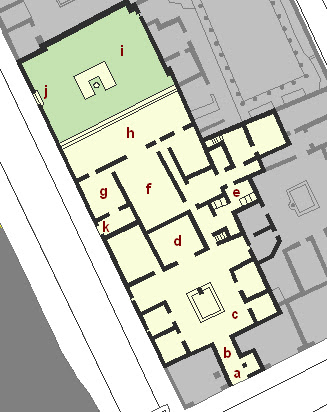
Traditional wisdom would predict a depressingly short history of liberty for the Roman people, who would eventually be dominated by their enemies due to their lack of resources. Against all odds, traditional wisdom was soundly thrashed as Rome progressed from strength to strength, overcoming their Italian enemies and expanding out into the wider Mediterranean. Many stunned spectators questioned how such an austere, agrarian civilization had come to dominate the Mediterranean with such unprecedented success.
Who is Polybius When did he write this?
Polybius' original purpose was to narrate the history of the 53 years (220–168 bce)—from Hannibal's Spanish campaign to the Battle of Pydna—during which Rome had made itself master of the world.

A self-confessed philhellene, James keeps at least one eye on the Roman pie. The events in Polybius' Histories span 118 years from BCE. Originally the work dealt with events up to 167 BC, but after witnessnessing the events 146 BCE, Polybius later included them in his narrative. Moreover, the anonymous compiler of the Periochae was capable of misunderstanding the text in front of him, and consequently the summaries give only a very shadowy picture of the lost books.
The Ancient World
Who is Millar?
Livy (59 bc–ad 17) ( Titus Livius) Roman historian. One of the greatest Roman historians, he began his History of Rome c.28 bc. Of the original 142 books, 35 have survived in full.
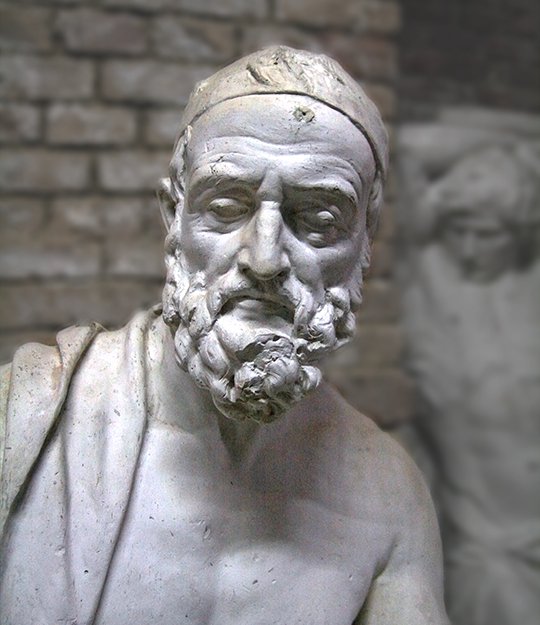
The Annals, Tacitus' final work, covers the period from the death of Augustus Caesar in 14 AD. He wrote at least sixteen books, but books 7–10 and parts of books 5, 6, 11 and 16 are missing. Book 6 ends with the death of Tiberius and books 7 to 12 presumably covered the reigns of Caligula and Claudius.
The republican system of governance constituted in Rome was referred to as "a res publica" meaning commonwealth. Romans, motivated by a desire for personal liberty and harmony, believed their mixed government would organize "the power of the one (the two consuls), the few, and the many were all balanced against each other" (Richard, 108). Polybius thought that this system would work because it combined the strenghts of monarchy, aristocracy, and democracy in line so that transfers of power and inevitability of tyranny could be avoided. Polybius shows which functions pertain to each form of the government. Thus, the Consuls represent the monarchic element, the Senate the aristocratic, and the people the democratic.
Early Roman Historiography
Furthermore, there is some admiration of Polybius's meditation on the nature of historiography in Book 12. His work belongs, therefore, amongst the greatest productions of ancient historical writing. The writer of the Oxford Companion to Classical Literature (1937) praises him for his "earnest devotion to truth" and his systematic pursuit of causation. Polybius wrote several works, the majority of which are lost. His earliest work was a biography of the Greek statesman Philopoemen; this work was later used as a source by Plutarch when composing his Parallel Lives, however the original Polybian text is lost.
- They were all composed on the model of Greek New Comedy, adapting stories from the Greek.
- The idea that the ideal government is one that blends elements of monarchy, aristocracy, and democracy.
- To Polybius it is the most important and he saw the Roman Republic as the embodiment of this mixed constitution and that this explained its stability.
- Historíai) were originally written in 40 volumes, only the first five of which are extant in their entirety.
In his letters the statesman Pliny the Younger records that Livy was tempted to abandon the enterprise but found that the task had become too fascinating to give it up; he also mentions a citizen of Cádiz who came all the way to Rome for the sole satisfaction of gazing at the great historian. St. Jerome says that Livy was born the same year as Marcus Valerius Messala Corvinus and died the same year as Ovid.[21] Messala, however, was born earlier, in 64 BC, and Ovid's death, usually taken to be the same year as Livy's, is more uncertain. Livy wrote during the reign of Augustus, who came to power after a civil war with generals and consuls claiming to be defending the Roman Republic, such as Pompey. To clarify his status, the victor of the civil war, Octavian Caesar, had wanted to take the title Romulus (the first king of Rome) but in the end accepted the senate proposal of Augustus. Rather than abolishing the republic, he adapted it and its institutions to imperial rule.
Polybius believed that Rome’s constitution was effective for two reasons. Secondly, it prevented what he referred to as “anacyclosis,” a cyclical theory of political evolution and decay. He also chronicled the conflicts between Hannibal and Publius Cornelius Scipio Africanus such as the Battle of Ticinus, the Battle of the Trebia, the Siege of Saguntum, the Battle of Lilybaeum, and the Battle of Rhone Crossing. In Book XII, Polybius discusses the worth of Timaeus’ account of the same period of history.
Tacitus on Christ
It is likely to be early work, indebted to the author's rhetorical training, since its style imitates that of the foremost Roman orator Cicero. It lacks (for example) the incongruities that are typical of his mature historical works. The Dialogus is dedicated to Fabius Iustus, a consul in 102 AD.
Polybius (l. c. BCE) was, whilst a Greek historian, a Roman historian, in that his work dealt with explaining how Rome came to be so great. Like the three Classical Greek Historians, Polybius himself had personal experiences and inquiries into what he was studying at a level that included and went beyond reading scrolls and memoirs stored in a library. Since the Age of Enlightenment, Polybius has in general held appeal to those interested in Hellenistic Greece and early Republican Rome, while his political and military writings have lost influence in academia. More recently, thorough work on the Greek text of Polybius, and his historical technique, has increased the academic understanding and appreciation of him as a historian.
This state of affairs was characteristic of the golden age of Rome and, with some changes, persisted to Polybius’s times. The Romans, according to the Histories of Polybius, had three forms of government, though the Roman constitution was never codified as a written document. All the functions were distributed among the three so equitably that it was impossible to establish whether Rome’s government was monarchic, aristocratic or democratic.
Polybius
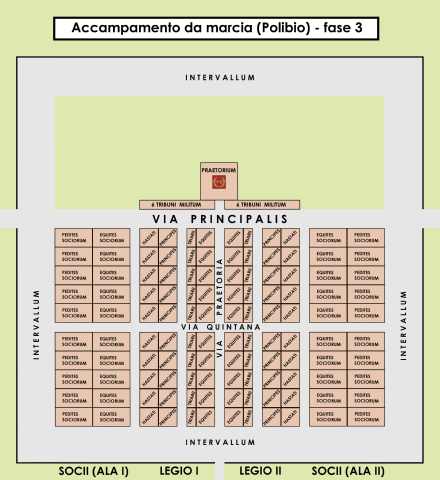
It is probable that the last 22 books, covering the career of Augustus to 9 B.C., were not published until after the Emperor's death in A.D. Tacitus cites some of his sources directly, among them Cluvius Rufus, Fabius Rusticus and Pliny the Elder, who had written Bella Germaniae and a historical work which was the continuation of that of Aufidius Bassus.


At first, Polybius believed that people were united due to their own weakness and fear. Thus, the strongest man among them rose to a position of power. This order resembled little more than the actions a herd of sheep or a flock of birds. Polybius was among the hostages captured and transported to Rome.
Polybius would remain on friendly terms with the latter as he rose to power, culminating in the events of 146 BCE, the sack of Carthage, and of Corinth. As such Polybius, whilst originally anti-Roman, came over to light of the Latins, and in the process gained a great amount of first-hand experience into the running of the Republic, an example of which can be seen in his description of the layout of the Roman army at 6.19-42.

While he places no value on the Stoic theory of suicide and views suicides as ostentatious and politically useless, Tacitus often gives prominence to speeches made by those about to commit suicide, for example Cremutius Cordus' speech in Ann. There is uncertainty about when Tacitus wrote Dialogus de oratoribus. Many characteristics set it apart from the other works of Tacitus, so that its authenticity has at various times been questioned.
What did Polybius believe?
Polybius (/pəˈlɪbiəs/; Greek: Πολύβιος, Polýbios; c. 208 – c. 125 BC) was a Greek historian of the Hellenistic period noted for his work The Histories, which covered the period of 264–146 BC in detail.
